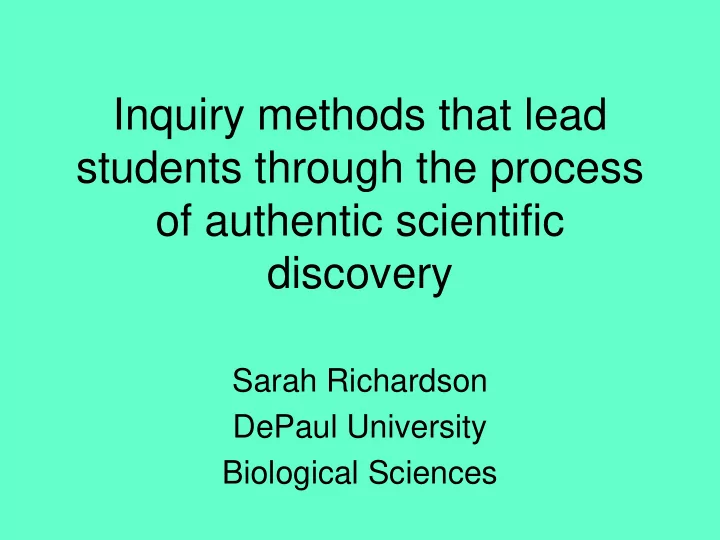

Inquiry methods that lead students through the process of authentic scientific discovery Sarah Richardson DePaul University Biological Sciences
Understanding Learning a body how new of knowledge knowledge is created in VS. discipline Memorization and Analysis and understanding Synthesis Passive Active
Traditional focus on lecture, textbook, “canned” labs Dull Seems like all questions are answered Students don’t practice thinking in discipline
Process of Scientific Discovery
Start by practicing experimental design in a thought experiment Example: an apple a day keeps the doctor away Example: find a penny, pick it up, and all day long, you’ll have good luck
Process starts with background knowledge • Readings • Class’ previous experiment • A technique – Example: How to ID trees using leaves – Example: How to measure soil nutrients – Example: How to measure species diversity
Generate questions individually • Emphasize quantity, not quality • 3 per 5 minutes in lab/ 20 per 20 min at site/ 60 per 60 minutes on walk
Generate questions individually • Emphasize quantity, not quality • 3 per 5 minutes in lab or 20 in 20 min at site or 60 in 60 minutes on walk Brainstorm as class--1 per student • Challenge to refine ideas “can you be more specific?” • Circle doable questions
Pilot experiment--work out methods • Students create plan in groups, practice methods, then check in • Stand back
“Grant Proposal”
• Collect data • Practice writing in discipline • Generate new questions
Process of Scientific Discovery
Recommend
More recommend